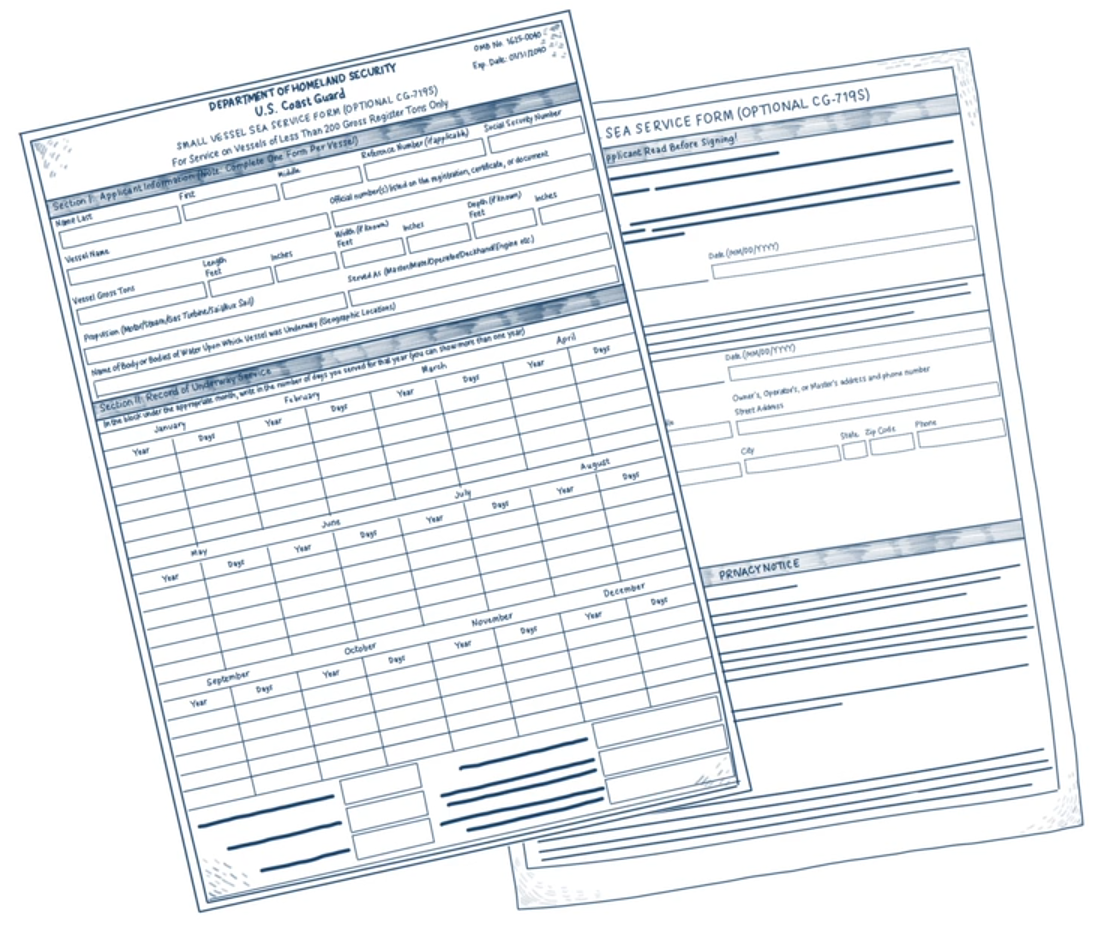Free Shipping On Orders $50+
Free Shipping On Orders $50+
How to Accumulate Sea Service Days for Your MMC
by Bob Figular May 02, 2024
The Journey to Becoming a Captain: Gaining the Required Sea Service Experience
Acquiring the required sea service experience is a fundamental step on the path to obtaining a USCG captain's license. For many aspiring captains, this process can take years of dedication and hands-on experience on the water. The United States Coast Guard (USCG) mandates specific sea service hours for various types of captain's licenses, and understanding how to accumulate and properly document these hours is crucial. In this article, we will explore some effective ways to gain valuable sea service experience, guiding you toward your goal of becoming a licensed captain.
Charter and Fishing Opportunities
One of the most direct ways to gain sea service experience is by working as a deckhand or crew member on charter boats or fishing vessels. These roles provide the opportunity to learn about vessel operations, navigation, and various maritime activities, all while working alongside licensed captains. Whether you’re assisting on a commercial fishing trip, a charter service, or an eco-tourism vessel, the time you spend onboard counts toward your sea service hours. These experiences give you practical, hands-on learning and expose you to the daily responsibilities of a captain.
Volunteering or Working in the Maritime Industry
Even if you’re not actively employed as a crew member, you can still gain valuable sea service by volunteering or working in the maritime industry. Many local boating clubs and maritime organizations offer opportunities to serve as part of a crew, participate in events, or help with vessel maintenance. By volunteering your time, you can accumulate sea service hours, enhance your understanding of vessel operations, and work alongside licensed professionals, which will ultimately help you toward your captain’s license.
Apprenticeships and Mentorship Programs
Another excellent way to build your sea service experience is through apprenticeships or mentorship programs. Many experienced licensed captains and maritime organizations offer these programs to give aspiring captains hands-on training and education. These programs are structured to provide real-world experience, allowing you to learn the ropes of being a captain, while also helping you accumulate the necessary sea service hours for your USCG license. The guidance you’ll receive from a mentor will provide you with practical knowledge and an insider’s perspective on the industry.
Military Service
For those who have served in the military, some of your sea service hours from active duty can count towards your captain’s license. The USCG offers military sea time credit at a rate of 60% for each qualifying day of military service spent aboard a vessel. This can be a great way to apply your previous military experience toward your civilian licensing goals. If you have military service, it’s important to ensure that your time is properly documented and credited.
Documenting and Recording Sea Service Hours
 No matter how you gain your sea service experience, it is vital to document and track the days you spend on the water. We recommend keeping a detailed log that includes the dates, vessel details, the specific duties you performed, and the total hours you accumulated.
No matter how you gain your sea service experience, it is vital to document and track the days you spend on the water. We recommend keeping a detailed log that includes the dates, vessel details, the specific duties you performed, and the total hours you accumulated.
For smaller vessels, the USCG requires applicants to fill out the CG-719S Small Vessel Sea Service Form, while larger vessels may require more official documentation, such as service logs, letters from vessel owners, or certificates of discharge. Properly documenting your sea service is an essential part of the licensing process, as inaccurate or missing documentation can delay your application.
Conclusion
The journey to obtaining a USCG captain’s license begins with accumulating the necessary sea service experience. Whether you work on charter boats, volunteer with local maritime organizations, take part in mentorship programs, or apply military sea time, there are many ways to gain the experience required for your license. Just be sure to carefully document and track your hours to ensure they count towards your application. With determination and the right guidance, you’ll be well on your way to becoming a licensed captain, ready to take on the challenges of the open water.
Leave a Comment
Comments will be approved before showing up.
